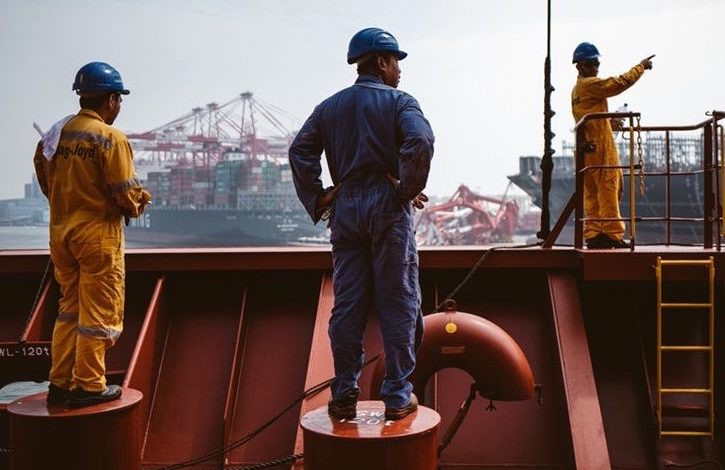Ships around the world urged to honk their support for the essential work seafarers are carrying out during the coronavirus crisis

Rather like the land-based efforts to recognise the extraordinary work of essential workers during the coronavirus crisis, shipping is beginning to make quite a noise in support of its seafarers. Today, as with every Thursday in the UK over the past few weeks, much of the population will come outside at 8pm banging pots and pans and applauding the nation’s health staff. Similar initiatives are taking place across the world, and increasingly on ships too.
The International Chamber of Shipping is calling on vessels around the world to sound their horns in port at noon on May 1, the Labour Day bank holiday, as a way of acknowledging the 1.6m seafarers who are working hard to deliver the food, fuel, goods and vital medical supplies needed during the ongoing pandemic.
The call has proven popular online with charity International Seafarers’ Welfare and Assistance Network (ISWAN) tweeting its support, noting, “Seafarers are the invisible workforce keeping us all supplied with the things we need during these challenging times”.
The May 1 celebration of seafarers, and the growing calls to get them classed as essential workers during the coronavirus crisis, is an onwards step from a campaign first launched by Abu Dhabi Ports at the end of last month. The Middle Eastern group has got a number of other ports around the world to follow its so-called Horns of Hope solidarity initiative. The initiative calls on all ships in harbours around the world to sound their horns in 15-second bursts each evening, in recognition of the efforts of maritime, healthcare, and critical sector personnel.
Kitack Lim, secretary-general of the International Maritime Organization, said: “As the world’s standard-setting organisation for the shipping industry, it is heartening to see the Horns of Hope solidarity campaign begun by the UAE has been so enthusiastically adopted by global ports. Those who work in shipping to keep the sea lines open for the world are to be admired and respected for their daily selfless acts of courage in the face of adversity and challenge. We are grateful and continue to applaud our members for their support of the Horns of Hope campaign.”
In a personal message to seafarers earlier this week, Lim stressed: “You are not alone. You are not forgotten.”
Lim said he had been “deeply touched by the many stories we have heard from individual seafarers of the challenges, hardships and sacrifices that seafarers have made to keep the global supply chain moving while helping the global population”.
He noted the difficulties the maritime industry has faced in conducting crew changeovers, providing medical care for sick and injured crew and allowing for shore leave, and added “the inability to resupply or repatriate crews concerns me greatly”.
Describing seafarers as being in the “front line’’ of the global fight against the pandemic, Lim said, “All of us at IMO understand the challenges you face.”
Lim has written to all IMO member states, urging them to recognise all seafarers as key workers, remove any barriers to their documentation and lift national travel restrictions so that they can get home on conclusion of their contracts, and rejoin their families.
For more on what international bodies are doing to resolve seafarer issues during the coronavirus crisis, check out the first episode of the Maritime CEO Leader Series here.

For the british merchant navy!! oh wait we don’t have one anymore!